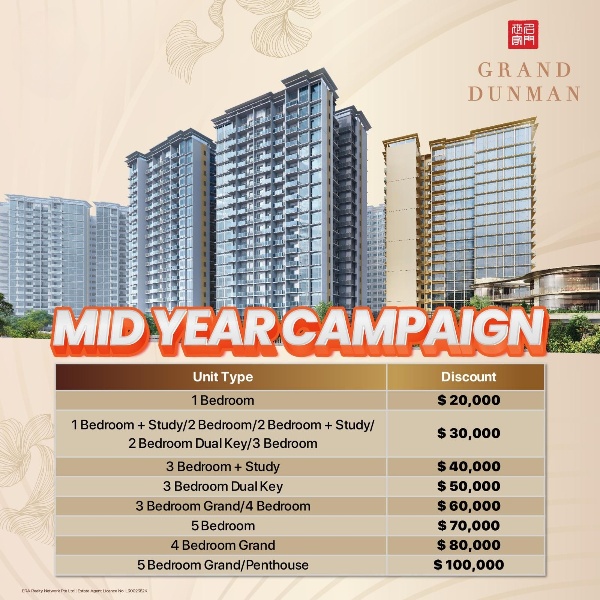Singapore is one of the most attractive destinations in Asia for professionals, students, and expats. The city-state is clean, safe, and efficient, and with its strong economy, it draws thousands of foreigners every year who come to work, study, or start a new chapter in life.
But once you’ve landed here, the first practical challenge often begins: finding a place to stay. Whether you’re here for six months or several years, housing in Singapore can feel tricky to navigate, especially if you’re not familiar with local rules and customs. If you’re considering renting a room rather than an entire apartment, you’re not alone, many foreigners choose this path because it’s more affordable, flexible, and convenient.
This article will guide you through everything you need to know about renting a room as a foreigner in Singapore: from understanding housing types to legal regulations, budgeting tips, and what to look out for before signing the lease.
Housing Options for Foreigners
When it comes to renting in Singapore, you’ll find three main types of housing:
- HDB Flats
- HDB stands for Housing & Development Board. These are government-built flats that house the majority of Singapore’s population. Some HDB owners rent out spare bedrooms or even the entire unit. If you’re browsing online, you’ll often see listings titled HDB for rent, which usually means a room or unit inside a public housing estate. Renting a room in an HDB can give you a taste of local living and usually comes at a lower cost compared to condos.
- HDB stands for Housing & Development Board. These are government-built flats that house the majority of Singapore’s population. Some HDB owners rent out spare bedrooms or even the entire unit. If you’re browsing online, you’ll often see listings titled HDB for rent, which usually means a room or unit inside a public housing estate. Renting a room in an HDB can give you a taste of local living and usually comes at a lower cost compared to condos.
- Condominiums
- Condos are private apartments that come with facilities like swimming pools, gyms, and 24-hour security. A room for rent in Singapore inside a condo is usually pricier than HDB, but many expats prefer it for the convenience and lifestyle perks.
- Condos are private apartments that come with facilities like swimming pools, gyms, and 24-hour security. A room for rent in Singapore inside a condo is usually pricier than HDB, but many expats prefer it for the convenience and lifestyle perks.
- Landed Properties
- These are terrace houses, semi-detached, or bungalows. Renting a room here is less common and usually more expensive, but it can be a unique experience if you prefer more space.
- These are terrace houses, semi-detached, or bungalows. Renting a room here is less common and usually more expensive, but it can be a unique experience if you prefer more space.
Can Foreigners Rent a Room in Singapore?
Yes, foreigners can legally rent a room or an entire unit in Singapore. But there are some conditions:
- Minimum Rental Period: The government sets a minimum rental duration, for private properties (condos, landed homes), it’s usually at least three months. For HDB flats, the minimum rental period is six months.
- Maximum Occupancy: An HDB flat can house a limited number of tenants (depending on flat size). The landlord is responsible for following these rules, but it’s good for you to be aware.
- Approval Needed: HDB owners who rent out rooms must register their tenants with the authorities. Always ensure your landlord has done this, as it protects both you and them legally.
Budgeting for Room Rentals
The cost of renting a room in Singapore varies depending on location, type of housing, and whether it’s a master bedroom (with ensuite bathroom) or common room (shared bathroom).
Here’s a rough guide (as of 2025):
- HDB common room: SGD 600 – 1,000 per month
- HDB master room: SGD 1,000 – 1,600 per month
- Condo common room: SGD 1,000 – 1,800 per month
- Condo master room: SGD 1,500 – 2,500+ per month
Additional costs:
- Utilities: Often split among flatmates; expect around SGD 80 – 150 monthly.
- Internet: Usually included, but check with the landlord.
- Security deposit: Typically one month’s rent for a one-year lease, sometimes two months.
Tip: Don’t just budget for rent. Consider transport costs (how far is your room from your workplace or university?), food, and daily living expenses.
Popular Areas for Foreigners to Rent Rooms
Different neighborhoods in Singapore have their own appeal. Here are some common picks among foreigners:
- Central (Orchard, River Valley, Tiong Bahru): Convenient, vibrant, but pricey.
- East (Tampines, Bedok, Katong): Affordable, near the airport, with lots of local food and a laid-back vibe.
- West (Clementi, Jurong, Bukit Timah): Close to universities like NUS and NTU; popular with students.
- North-East (Serangoon, Hougang, Sengkang): Growing expat communities, affordable HDBs.
- CBD / Tanjong Pagar: Great for professionals who want to live close to work.
Things to Check Before Renting
Renting a room in a new country can feel intimidating. To avoid headaches, make sure you go through this checklist before saying yes:
- View the Room in Person (if possible)
Photos can be misleading. If you’re abroad, try to schedule a virtual tour with the landlord or agent. - Understand the Lease Terms
Check the length of the lease, notice period, and renewal terms. A tenancy agreement should always be signed. - Ask About Bills
Clarify whether utilities, internet, and cleaning are included. Some landlords bundle them in, others don’t. - Check House Rules
Are guests allowed? What about cooking? Can you keep a pet? These things differ from one household to another. - Confirm Registration
If you’re renting in an HDB, make sure your landlord has registered you as a tenant with HDB. - Security Deposit
Understand the conditions for getting your deposit back. Normally, it should be refunded unless there’s damage or unpaid bills.
Common Mistakes Foreigners Make
- Paying without a contract: Always insist on a written agreement.
- Not checking location properly: Living far from an MRT station can add a lot of commuting time and transport costs.
- Overlooking hidden costs: Aircon servicing, utility bills, or even mandatory cleaning fees can add up.
- Not knowing tenant rights: For example, landlords cannot just enter your room without notice.
Tips for a Smooth Renting Experience
- Be clear with expectations: Whether it’s noise levels, cleanliness, or shared chores, setting things straight early can prevent conflict.
- Respect cultural differences: Singapore is multicultural, and so are its rental homes. A little understanding goes a long way.
- Keep copies of all payments: Especially if you’re transferring rent via bank or cash.
- Network with other expats: Many good room deals are found by word of mouth.
Alternatives to Traditional Room Rentals
Besides the typical HDB and condo rooms, there’s also a growing trend of co-living spaces. These are fully furnished rooms or studios with shared communal areas, weekly cleaning, and utilities included in the rent. While they’re often more expensive, they’re hassle-free and popular among younger expats and professionals who want a ready-made community.
Renting a room in Singapore as a foreigner doesn’t have to be complicated. Yes, the housing market can feel overwhelming at first, with so many listings and rules to digest. But once you understand the basics, from lease terms to common rental costs, it becomes much easier to find a comfortable place that suits your lifestyle and budget.
Whether you go for an affordable HDB for rent or a stylish condo with facilities, remember that the most important thing is finding a space where you feel safe, comfortable, and at home. After all, your room is where you’ll rest after long days of work, study, or exploring everything Singapore has to offer.
With the right preparation, a good landlord, and clear communication, you’ll soon discover that finding a room for rent in Singapore can be a smooth process and the start of a rewarding new chapter in this vibrant city.


